I'm trying to craft a straight SQL (not stored procedure) query that finds all databases in a MySQL database server with a table whose name matches a pattern and has a certain collation, and then use the list of those database names and table names to get a specific value out of the tables that match the pattern.
For this query:
- I do not know the names of the databases on the server (they must be queried)
- I do not know the names of the tables in the database that could match (they must be compared against a pattern of %options)
For example, if I have 3 databases:
DB1 with tables:
- something
- f_options (containing a row where the value for a column called option_name is 'test' and the value for the option_value column is 'y')
DB2 with tables:
- something
DB3 with tables:
- something_else
- zeoptions (containing a row where the value for a column called option_name is 'test' and the value for the option_value column is 'z')
Then I want a query that:
- Finds databases with tables who match the collation and naming scheme
- Select the values of the rows where the column called option_name has a row whose value is "test" in the column
For example, in the above 3 database tables, it would see Database 1 and 3 have a matching table, and it would return the values 'y' and 'z'
I'm trying to do this without using stored procedures or views (just a simple SQL statement).
So far I've gotten a working system that does 1. By querying the MySQL information_schema table, I can get the names of the databases + matching tables using this:
SELECT s.dbname, s.tablename FROM ( SELECT
`information_schema`.`TABLES`.`TABLE_SCHEMA` dbname ,
`information_schema`.`TABLES`.`TABLE_NAME` tablename FROM
`information_schema`.`TABLES` WHERE `information_schema`.`TABLES`.`TABLE_NAME` LIKE
'%options' AND `information_schema`.`TABLES`.`TABLE_COLLATION` LIKE
'utf8mb4_unicode_ci' ) as s;

Now the problem is figuring out how to write a SELECT statement who uses the above SQL statement as a subquery to populate the FROM
Right now this is what I have (though there's an obvious SQL error in how the FROM statement currently works). If I can solve the FROM statement issue I can finish the rest
SELECT `s.dbname`.`s.tablename`.`option_value` FROM `s.dbname`.`s.tablename`
( SELECT `information_schema`.`TABLES`.`TABLE_SCHEMA` dbname ,
`information_schema`.`TABLES`.`TABLE_NAME` tablename FROM
`information_schema`.`TABLES` WHERE
`information_schema`.`TABLES`.`TABLE_NAME` LIKE '%options' AND
`information_schema`.`TABLES`.`TABLE_COLLATION` LIKE 'utf8mb4_unicode_ci' ) as s
WHERE `s.dbname`.`s.tablename`.`option_name` LIKE 'test';
Which can be simplified to
SELECT `s.dbname`.`s.tablename`.`option_value` FROM `s.dbname`.`s.tablename`
( the working query above ) as s
WHERE `s.dbname`.`s.tablename`.`option_name` LIKE 'test';
Does anyone know how I can fix the
FROM `s.dbname`.`s.tablename` ( SELECT ... ) as s
part?